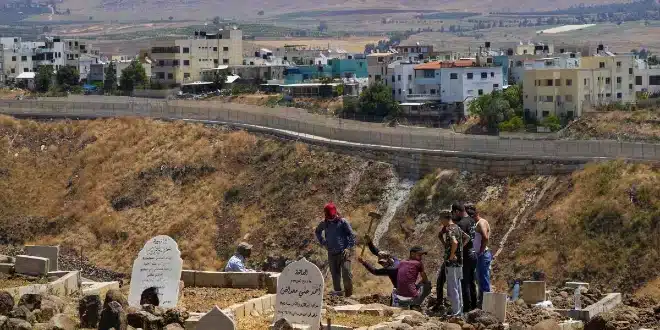Hezbollah launched multiple attacks on Israeli positions on Friday, while the Israeli military responded by shelling several towns in southern Lebanon.
Israeli artillery targeted the outskirts of al-Hebbarieh and Rashaya al-Fokhar, and warplanes bombed the border town of Markaba, injuring one person, as well as the al-Rihan mountain in Iqlim al-Tuffah, which is far from the border.
Hezbollah claimed responsibility for attacking the Ramtha and al-Semmaqa posts in the occupied Kfarshouba hills and the Ramia post in northern Israel. Israeli warplanes had earlier struck the outskirts of Tayr Harfa overnight.
On Thursday, Hezbollah fired over 200 rockets at various military bases in Israel and the Golan Heights in retaliation for an Israeli strike that killed one of its senior commanders. This large-scale attack, one of the biggest in the ongoing conflict along the Lebanon-Israel border, resulted in the death of an Israeli soldier.
Hashem Safieddine, head of Hezbollah’s Executive Council, vowed continued retaliatory attacks, promising to target unexpected sites. He claimed that while Israel sometimes acknowledges these hits, the reality is that there have been numerous casualties.
The U.S. and France are urgently working to prevent these skirmishes from escalating into a full-scale war, fearing it could spread across the region. Initially, Washington hoped to achieve calm along the Lebanon-Israel border independently of the Gaza conflict. However, since President Joe Biden’s call for Hamas to agree to a cease-fire, the U.S. has stated that ending the Gaza war could lead to stability in Lebanon and northern Israel as well.
The relatively low-level conflict began shortly after the outbreak of the war in Gaza. Hezbollah states that its strikes on Israel are in solidarity with Gaza and that it will cease its attacks once there is a Gaza cease-fire. Despite not seeking war, Hezbollah claims it is prepared for one.
Israeli officials warn that they may resort to war in Lebanon if diplomatic efforts fail. The fighting has displaced tens of thousands on both sides of the border. In northern Israel, 16 soldiers and 11 civilians have been killed, while in Lebanon, over 450 people—mostly fighters but also dozens of civilians—have been killed.
Israel views Hezbollah as its most immediate threat, believing the group has an arsenal of 150,000 rockets and missiles, including precision-guided ones. In 2006, Israel and Hezbollah fought a monthlong war that ended without a decisive victory for either side.


